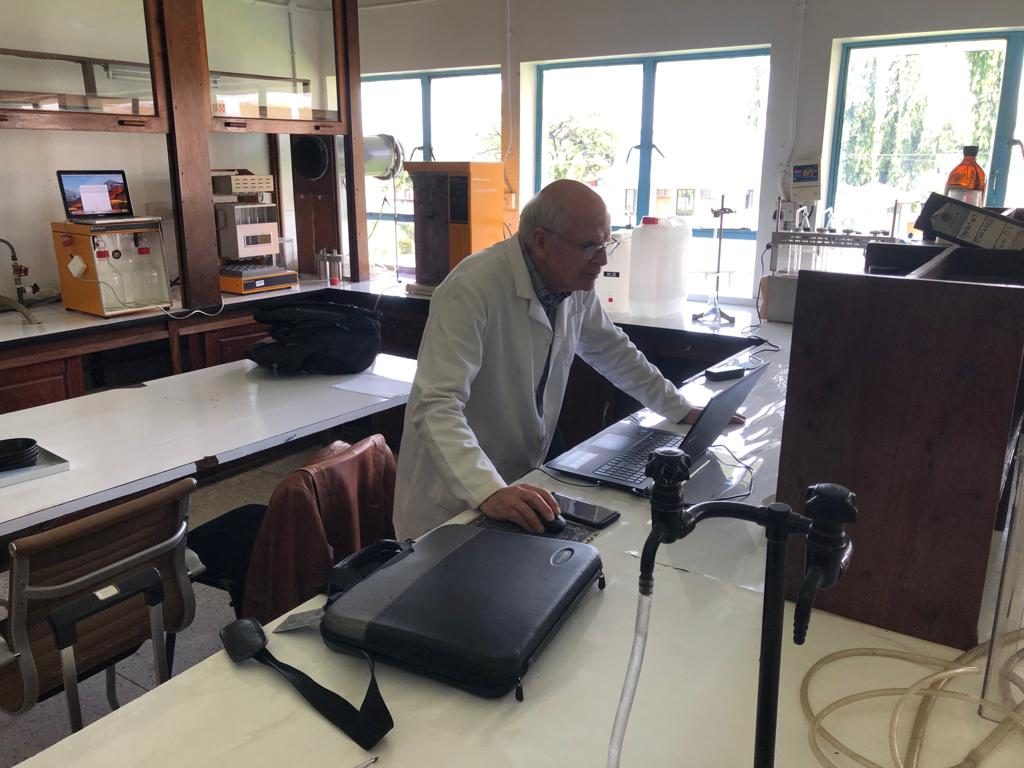The success of a feed laboratory in Tanzania represents just one of the building blocks needed to lay the foundation for future growth in the livestock and poultry industries in East Africa.
The Central Veterinary Laboratory (CVL) conducts, on average, more than 230 feed sample tests monthly, analyzing the quality of raw materials and feed additives used in growing livestock industries in the country. By supporting this laboratory and these end-users, the U.S. Grains Council (USGC) is helping to build markets from the ground up while working to create future market access for U.S. coarse grains in Tanzania, Kenya and Ethiopia.
“The Council’s support to the CVL is a key component of the Council’s program in East Africa, funded for the next two years by the U.S. Department of Agriculture’s (USDA’s) Agricultural Trade Promotion (ATP) program,” said Katy Wyatt, USGC manager of global strategies, who recently traveled to Tanzania to check in on the lab’s progress and assess market opportunities in Kenya and Ethiopia. “Ensuring reliable and trusted feed laboratories are in place will catalyze the growth in professional, high-quality feeds that will ensure a healthy and viable feed sector develops in the region.”
Six years ago, the CVL was struggling to attract the feed industry to utilize its facilities – driven by a lack of trust and access to the lab’s services. As a result, lead livestock and poultry producers in Tanzania were forced to rely on inconsistent and inferior feed ingredients or mix their own feed on the farm.
“Poor quality feed is largely the result of inconsistent access to quality raw materials and feed additives among feed manufacturers – leading manufacturers to produce and sell feed that causes livestock and poultry to underperform and mortality rates to increase,” Wyatt said. “Without access to and without utilizing an effective analytical feed analysis and quality assurance systems, producers in Tanzania were at a significant production disadvantage.”
The Council, recognizing the long-term potential in the market, stepped in and helped the CVL develop the lab’s feed operational standards – both lab management and technical expertise – under a Food for Progress (FFP) grant that will formally end in 2019. With USDA ATP program funding, the Council will continue to strengthen the analytical and technical expertise available by working with lab staff to calibrate and validate lab equipment, its near-infrared spectroscopy machine and mineralizer.
“Addressing the need for a more consistent supply of high-quality feed is important to helping East African poultry and livestock producers meet the demands of a developing continent,” said Wyatt. “As population growth puts an even greater strain on countries to meet growing demand for food, investment in the agricultural sector is a key priority.”
Africa’s population is anticipated to increase from 1.1 billion to more than 2.3 billion between now and 2050. This growth, coupled with a growing middle-class and changes in consumer behaviors, raise questions as to how the continent will meet growing demand for high-protein animal foods, including meat, eggs and milk.
According to the Food and Agricultural Organization, annual poultry and egg consumption will increase by 3.3 percent and 3.1 percent, respectively, through 2050. These growing poultry and livestock industries will require similar growth in animal feed production on the continent to meet this demand.
The Council will continue to support these industries through programs like the CVL to help regional producers learn how to improve their businesses. Doing so helps pave the way for imports of feed grains and co-products from the United States to capture this long-term feed demand in Africa.
About The U.S. Grains Council
The U.S. Grains Council develops export markets for U.S. barley, corn, sorghum and related products including distiller’s dried grains with solubles (DDGS) and ethanol. With full-time presence in 28 locations, the Council operates programs in more than 50 countries and the European Union. The Council believes exports are vital to global economic development and to U.S. agriculture’s profitability. Detailed information about the Council and its programs is online at www.grains.org.


